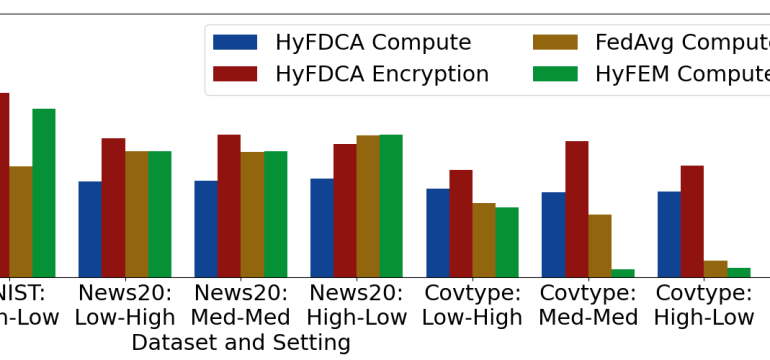Authors: Tom Overman, Garrett Blum, Diego Klabjan
Published on: October 14, 2022
Impact Score: 8.22
Arxiv code: Arxiv:2210.08106
Summary
- What is new: A new robust algorithm for hybrid federated learning leveraging Fenchel Duality, providing a solution to the problem where clients only have partial data. It is proven to converge similarly to central training under various conditions.
- Why this is important: Existing methods for hybrid federated learning are limited, especially in settings where clients hold only subsets of features and samples.
- What the research proposes: A robust and fast algorithm based on Fenchel Duality is proposed for hybrid federated learning that overcomes the limitations of current methods.
- Results: The algorithm outperforms FedAvg and HyFEM in terms of performance in experimental settings, with added advantages in privacy protection.
Technical Details
Technological frameworks used: Hybrid Federated Learning based on Fenchel Duality
Models used: Comparison models: FedAvg, HyFEM
Data used: Experimental datasets demonstrating various practical regimes
Potential Impact
This research could significantly impact sectors relying on decentralized data sources for machine learning, such as healthcare, finance, and cross-industry collaborations.
Want to implement this idea in a business?
We have generated a startup concept here: FedSecure.



Leave a Reply